
Mlilwane Wildlife Sanctuary: Eswatini's Natural Haven
Nestled in the heart of Eswatini, the Mlilwane Wildlife Sanctuary is a serene escape for nature lovers and wildlife enthusiasts. Covering 4,560 hectares, this sanctuary is the oldest protected area in Eswatini, offering a diverse landscape of grasslands, mountains, and rivers. Visitors can explore the sanctuary through various activities such as guided game drives, horseback safaris, and mountain biking, providing an immersive experience with nature. Mlilwane is home to a myriad of wildlife, including zebras, antelopes, hippos, and over 300 bird species. The sanctuary's name, 'Mlilwane,' means 'Little Fire' in siSwati, reflecting the historical significance of the area where early settlers used controlled burns to manage the grasslands. The Reilly family established the sanctuary in the 1960s, turning it into a conservation success story. Visitors can stay in traditional beehive huts, self-catering cottages, or the rustic campsite, ensuring a range of accommodation options to suit different preferences. The sanctuary also features the Hippo Haunt Restaurant, where guests can enjoy local cuisine while watching hippos wallow in the nearby waterhole. Mlilwane Wildlife Sanctuary is a must-visit destination for those seeking tranquility and a genuine connection with nature.
Local tips in Mlilwane Wildlife Sanctuary
- Book guided tours in advance to ensure availability.
- Visit during the dry season (May to September) for the best wildlife viewing opportunities.
- Pack binoculars and a camera to capture the abundant birdlife and scenic views.
- Wear comfortable, sturdy shoes for walking and hiking activities.
- Carry insect repellent to protect against mosquitoes, especially during the evening.
Mlilwane Wildlife Sanctuary: Eswatini's Natural Haven
Nestled in the heart of Eswatini, the Mlilwane Wildlife Sanctuary is a serene escape for nature lovers and wildlife enthusiasts. Covering 4,560 hectares, this sanctuary is the oldest protected area in Eswatini, offering a diverse landscape of grasslands, mountains, and rivers. Visitors can explore the sanctuary through various activities such as guided game drives, horseback safaris, and mountain biking, providing an immersive experience with nature. Mlilwane is home to a myriad of wildlife, including zebras, antelopes, hippos, and over 300 bird species. The sanctuary's name, 'Mlilwane,' means 'Little Fire' in siSwati, reflecting the historical significance of the area where early settlers used controlled burns to manage the grasslands. The Reilly family established the sanctuary in the 1960s, turning it into a conservation success story. Visitors can stay in traditional beehive huts, self-catering cottages, or the rustic campsite, ensuring a range of accommodation options to suit different preferences. The sanctuary also features the Hippo Haunt Restaurant, where guests can enjoy local cuisine while watching hippos wallow in the nearby waterhole. Mlilwane Wildlife Sanctuary is a must-visit destination for those seeking tranquility and a genuine connection with nature.
When is the best time to go to Mlilwane Wildlife Sanctuary?
Iconic landmarks you can’t miss
Mlilwane Game Sanctuary
Experience the breathtaking beauty and rich wildlife of Mlilwane Game Sanctuary, a top nature preserve in Eswatini perfect for adventure and relaxation.
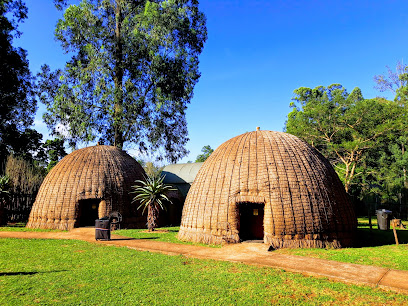
Hlane Royal National Park
Explore Hlane Royal National Park, Eswatini's largest wildlife sanctuary, known for its magnificent landscapes and diverse fauna, making every visit unforgettable.
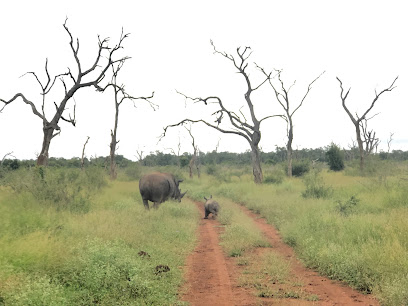
Mlawula Nature Reserve
Explore the diverse wildlife and stunning landscapes of Mlawula Nature Reserve, a serene national park in the heart of Eswatini.
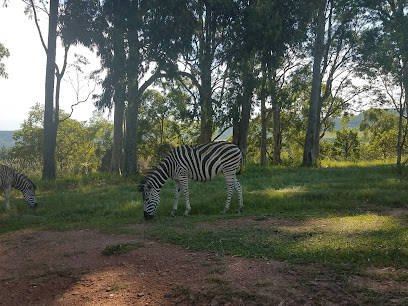
Mbuluzi Game Reserve
Explore the breathtaking Mbuluzi Game Reserve in Eswatini, a wildlife haven filled with natural beauty and diverse ecosystems for every nature lover.
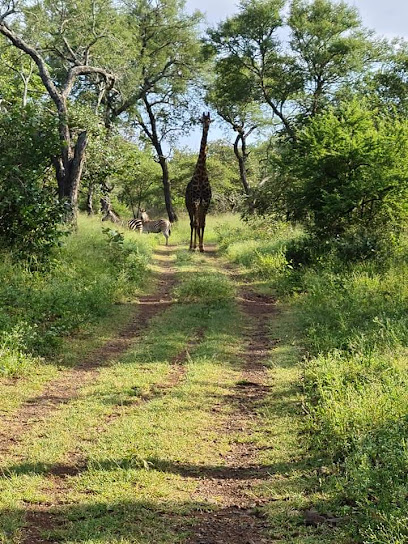
Swaziland National Museum
Explore the cultural heritage of Eswatini at the Swaziland National Museum, a treasure trove of history and tradition in Lobamba.
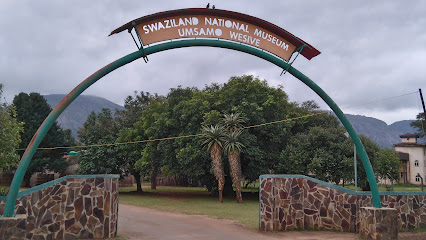
Nsangwini Rock Art
Explore the ancient rock engravings at Nsangwini Rock Art, a UNESCO World Heritage site in Eswatini, and uncover the stories of early inhabitants.
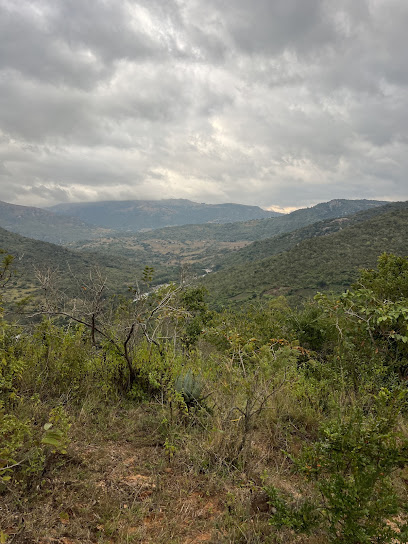
The Kingdom Of Eswatini's Big Game Parks
Discover the unparalleled beauty and wildlife of the Kingdom of Eswatini's Big Game Parks, where adventure and nature unite in a breathtaking landscape.
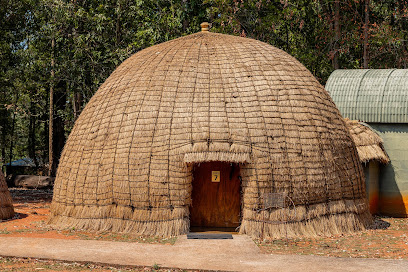
Unmissable attractions to see
House On Fire / Malandelas Restaurant
Discover Eswatini's vibrant culture and culinary delights at House On Fire, a unique restaurant and performing arts venue in Malkerns.
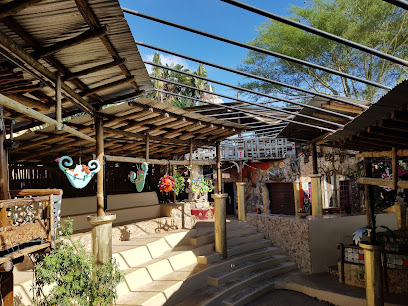
Mbuluzi Game Reserve
Explore the breathtaking landscapes and diverse wildlife of Mbuluzi Game Reserve in Eswatini, a perfect destination for nature lovers and adventure seekers.
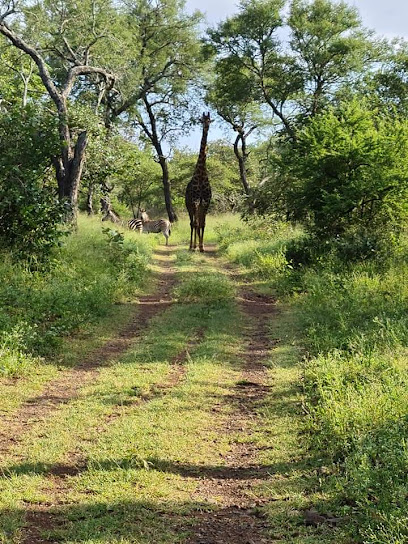
Malandelas Complex
Immerse yourself in the beauty and tranquility of Malandelas Complex, a unique bed and breakfast in Eswatini offering botanical gardens and delightful dining experiences.
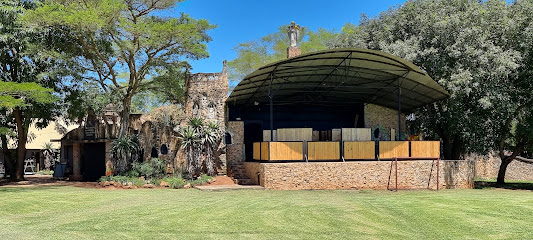
Dombeya Wildlife Estate
Discover the tranquility and beauty of wildlife at Dombeya Wildlife Estate in Eswatini, where luxury meets nature in perfect harmony.
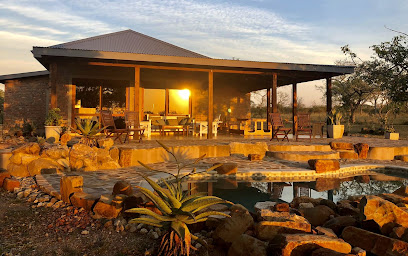
Swazi Village Home Stay
Discover the authentic culture and warm hospitality of Eswatini at Swazi Village Home Stay, your gateway to immersive local experiences.
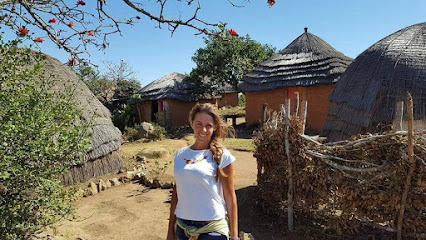
Phophonyane Falls Nature Reserve
Experience the breathtaking beauty of Phophonyane Falls Nature Reserve, a serene escape in the heart of Eswatini's lush landscapes.
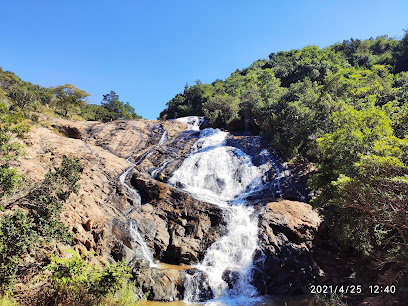
Tfutjana Mount Resort
Explore the breathtaking landscapes and cultural richness of Tfutjana Mount Resort in Kholwane, Eswatini – a perfect destination for nature lovers.
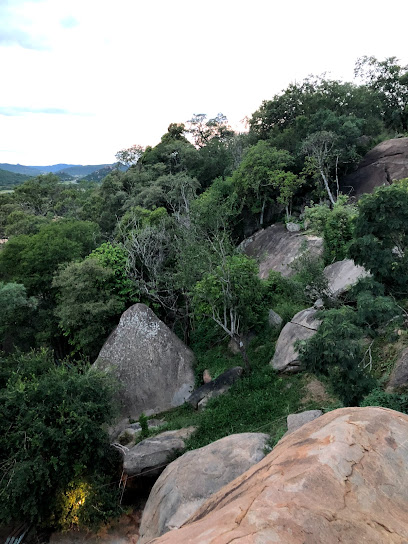
Malolotja Falls
Experience the breathtaking beauty of Malolotja Falls in Eswatini's nature reserve, a perfect blend of adventure and tranquility.
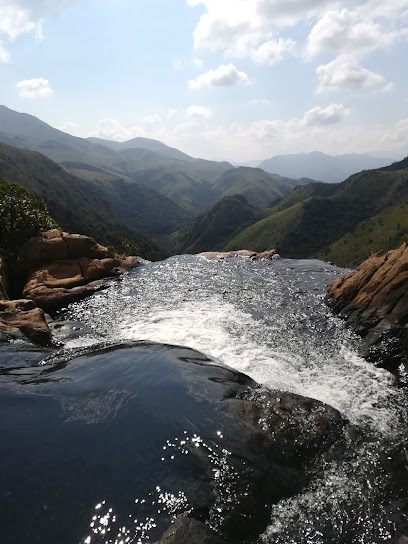
Nkoyoyo Quarry Dam
Explore the breathtaking Nkoyoyo Quarry Dam in Mbabane, Eswatini, a serene haven for nature lovers and adventure seekers alike.
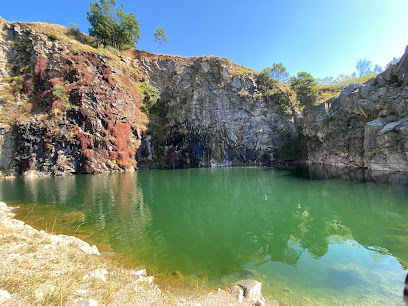
Nsangwini
Explore the ancient rock art and rich culture of Nsangwini, a must-visit attraction in Eswatini for history and nature lovers alike.
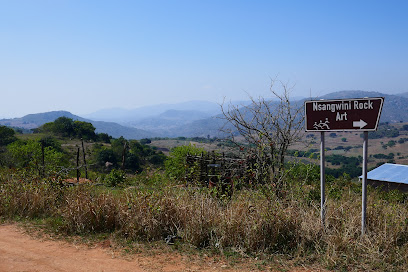
All Saints Cathedral
Discover the spiritual beauty and architectural splendor of All Saints Cathedral in Mbabane, a must-visit Anglican church in Eswatini.

Nkoyoyohiking Spot
Explore the breathtaking Nkoyoyo Hiking Spot near Mbabane, Eswatini, where stunning trails and vibrant nature await outdoor enthusiasts.
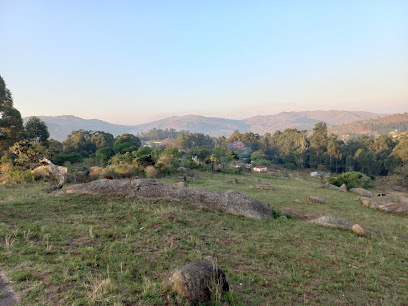
The Avenue
Discover the serene beauty of The Avenue, a lush park in Lobamba, Eswatini, perfect for relaxation, picnics, and cultural experiences.
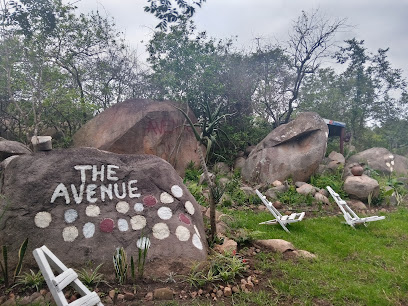
Sunrise Park
Discover the serene beauty of Sunrise Park in Mbabane, a perfect destination for relaxation, picnics, and enjoying nature's tranquility.
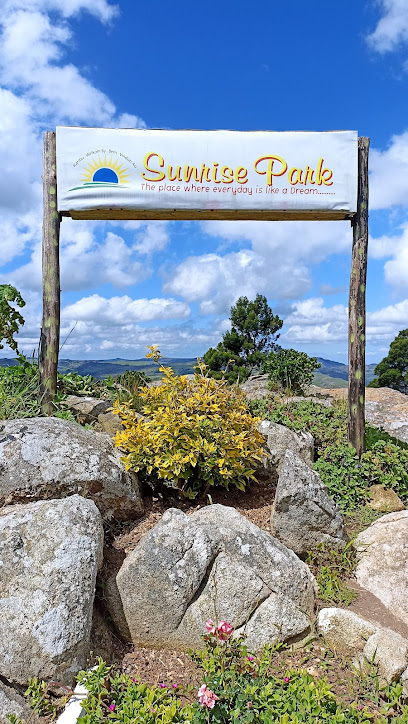
Off-Track eSwatini camping and adventure
Explore the serene landscapes and thrilling adventures at Off-Track eSwatini, a premier destination for nature lovers and adventure seekers.
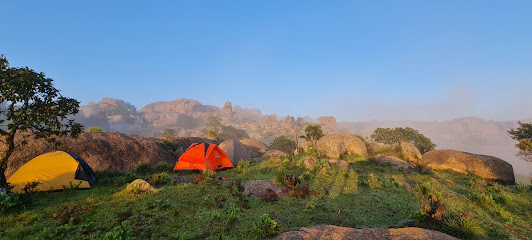
Essential places to dine
Mlilwane Game Sanctuary
Experience the breathtaking beauty of wildlife at Mlilwane Game Sanctuary - a nature lover's paradise in Eswatini.
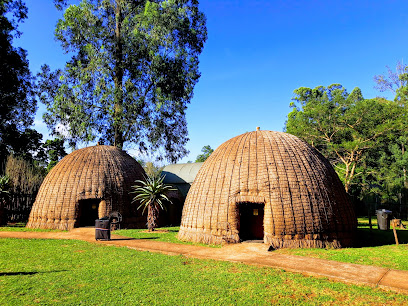
Mantenga Lodge
Experience comfort and tranquility at Mantenga Lodge in Ezulwini Valley, Eswatini - your gateway to nature and culture.
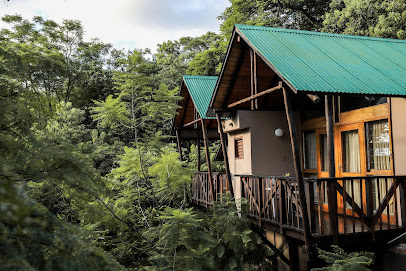
Foresters Arms
Experience unparalleled hospitality at Foresters Arms: your gateway to relaxation and vibrant nightlife in Eswatini.
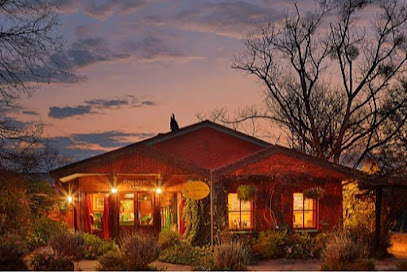
House On Fire / Malandelas Restaurant
Discover culinary delights and vibrant cultural performances at House On Fire in Eswatini – where art meets gastronomy.
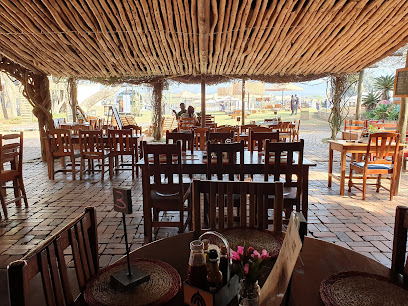
Ramblas Restaurant Mbabane
Experience the best of Eswatini’s culinary scene at Ramblas Restaurant Mbabane - where tradition meets taste in every bite.
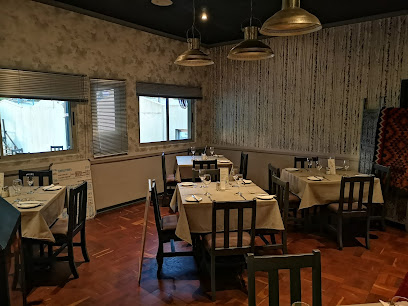
Malandela's Lifestyle Centre
Explore Malandela's Lifestyle Centre: Where Craftsmanship Meets Culinary Delights in Malkerns, Eswatini.
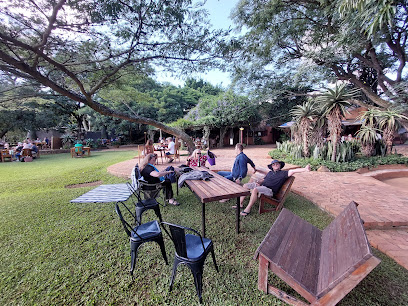
The Velvet Monkey
Experience authentic Italian cuisine at The Velvet Monkey in Lobamba - where flavors meet tradition in a cozy setting.
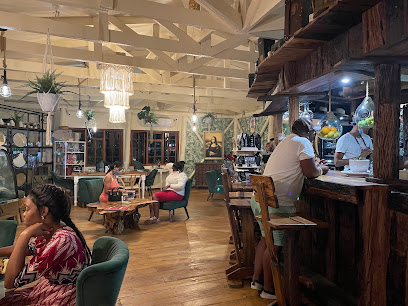
Nando's Manzini
Discover mouthwatering peri-peri chicken at Nando's Manzini in Bhunu Mall—where South African and Portuguese flavors come alive.
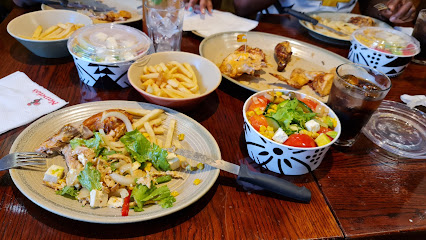
eMfuleni Lifestyle
Savor authentic Swazi flavors at eMfuleni Lifestyle - where every meal tells a story in Lobamba.
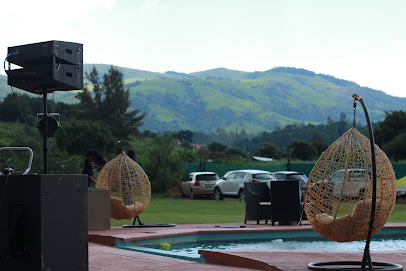
Gil Vicente Restaurant
Experience the rich culinary heritage of Eswatini at Gil Vicente Restaurant in Manzini - where local flavors meet international cuisine.
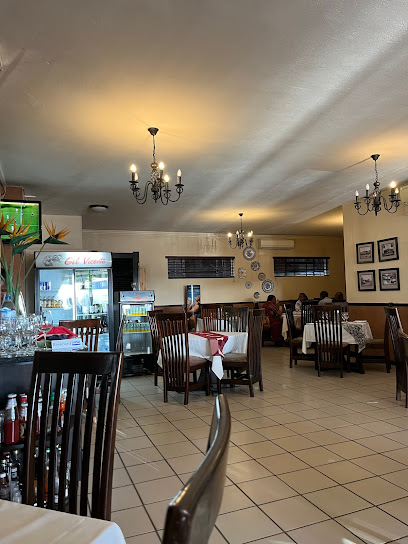
Nando's Matsapha
Discover the vibrant flavors of South African and Portuguese cuisine at Nando's Matsapha - home of the legendary peri-peri chicken.

Sugar Snap Café
Experience authentic Eswatini flavors at Sugar Snap Café in Mbabane – where every meal tells a story.
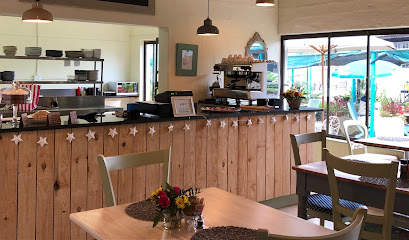
Mlilwane NR Campsite
Discover tranquility and adventure at Mlilwane NR Campsite in Eswatini's breathtaking wildlife sanctuary.
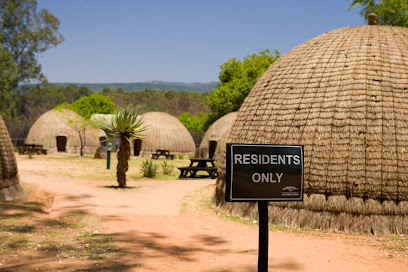
268 JAMS
Discover authentic Eswatini cuisine at 268 JAMS – where local flavors meet warm hospitality in the heart of Mbabane.
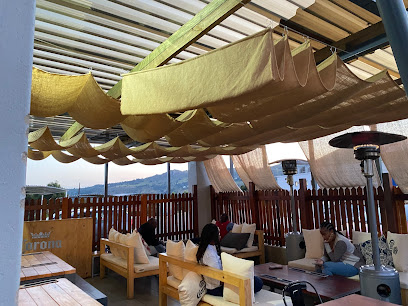
Yoon’s Kitchen
Discover authentic flavors at Yoon's Kitchen, where local ingredients meet culinary creativity in the heart of Mbabane.
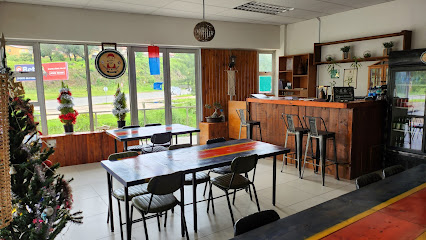
Markets, malls and hidden boutiques
Mlilwane Game Sanctuary
Discover the breathtaking landscapes and diverse wildlife of Mlilwane Game Sanctuary, a prime nature preserve in Eswatini.
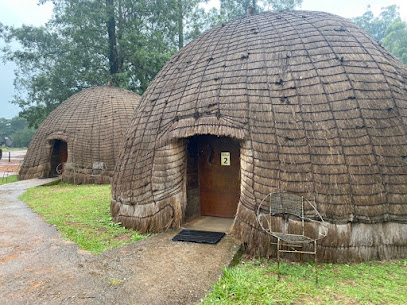
Swazi Candles
Discover the vibrant artistry of handcrafted candles at Swazi Candles in the heart of Malkerns Valley, Eswatini.
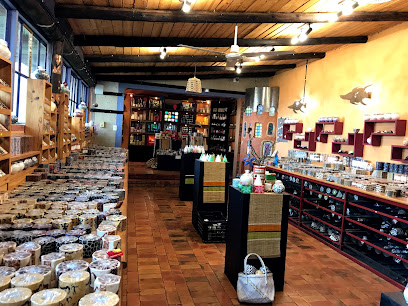
The Gables Shopping Center
Explore The Gables Shopping Center in Ezulwini for a unique shopping experience, with diverse stores, dining options, and community events.

Mantenga Lifestyle & Craft Centre
Experience the essence of Eswatini at the Mantenga Lifestyle & Craft Centre, where local crafts, adventure sports, and delicious dining await.
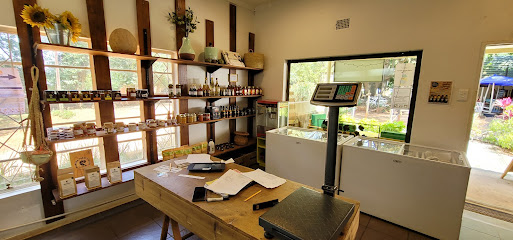
Malandela's Lifestyle Centre
Explore Malandela's Lifestyle Centre: A vibrant shopping and dining destination showcasing Eswatini's rich culture and craftsmanship.
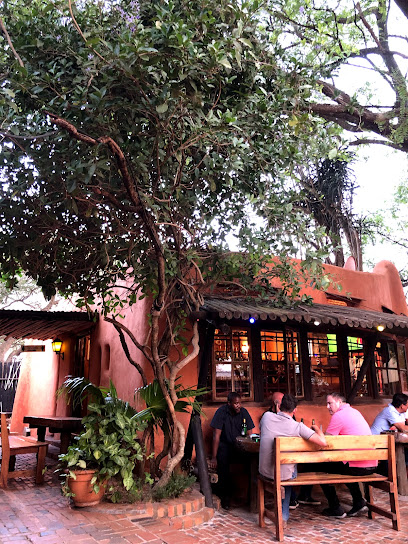
Crown Of A Natural (Obsessories)
Explore the enchanting Crown Of A Natural (Obsessories) in Eswatini, a gift shop showcasing unique local crafts and unforgettable treasures.
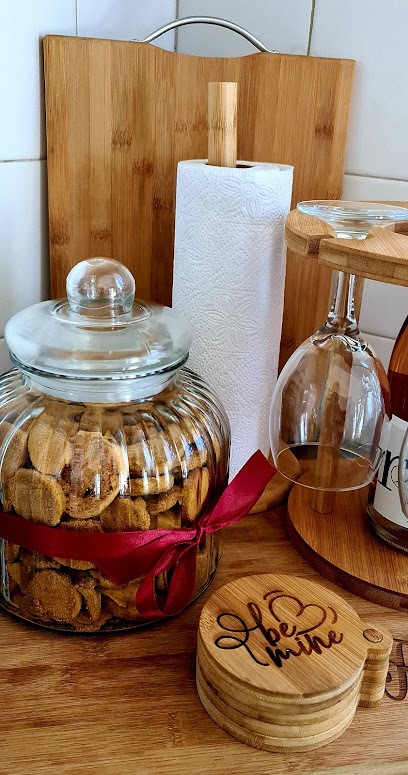
Malkerns Square Eswatini
Explore Malkerns Square, a vibrant shopping mall in Eswatini, offering unique local crafts, a variety of shops, and delightful dining experiences.

Pick n Pay Malkerns
Explore a vibrant selection of local and international products at Pick n Pay Malkerns, a key destination for shoppers in Eswatini.

Lobamba Lomdzala Market
Discover the vibrant Lobamba Lomdzala Market in Eswatini, a true cultural experience with fresh produce and unique local crafts.
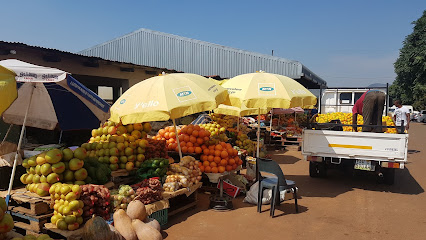
Kwazi Swazi
Explore the literary treasures of Kwazi Swazi in Malkerns, a must-visit bookstore offering a unique selection of books and local authors.
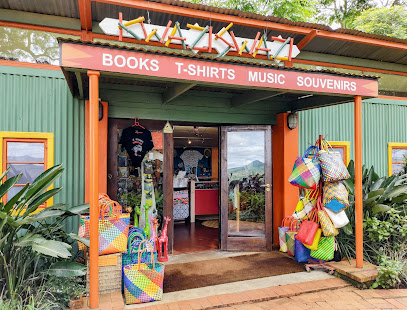
Baobab Batik workshop
Explore the artistry of batik at Baobab Batik Workshop, where tradition meets creativity in the heart of Eswatini.
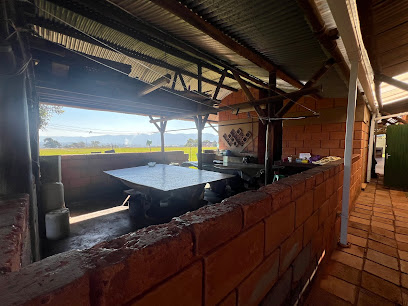
The Wine Boutique
Explore the exquisite selection of wines at The Wine Boutique in Lobamba, a must-visit for wine lovers in Eswatini.
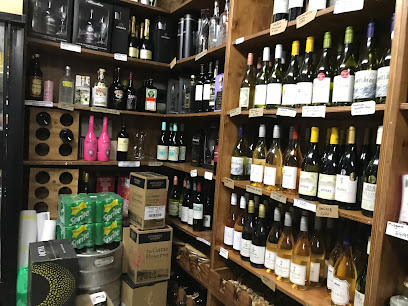
The FIX - The Gables
Explore The FIX - The Gables in Lobamba for a vibrant selection of women's and children's clothing, fashion accessories, and stylish footwear.

Khokho Collection
Explore Khokho Collection in Eswatini for unique, handcrafted handbags that reflect local artistry and style, perfect for every fashion enthusiast.

Woolworths Ezulwini
Explore Woolworths Ezulwini in Lobamba, Eswatini, your ultimate destination for quality shopping and local delights.

Essential bars & hidden hideouts
Solanis
Experience the vibrant flavors of Eswatini at Solanis, a top grill destination in Mbabane, perfect for food lovers seeking local cuisine.
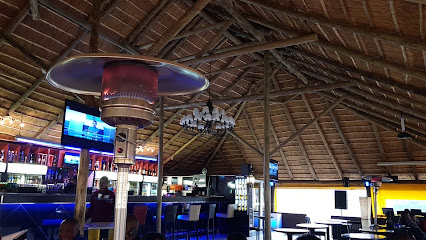
Mugg & Bean Swaziland
Experience the rich flavors and cozy atmosphere at Mugg & Bean Swaziland, a must-visit dining destination in the heart of Ezulwini.

The Velvet Monkey
Experience the authentic taste of Italy at The Velvet Monkey, where every dish tells a story of culinary passion and freshness.
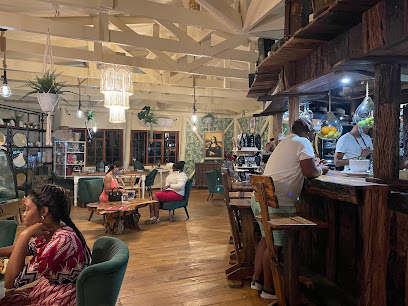
Amigos Restaurant
Discover the taste of Portugal in the heart of Eswatini at Amigos Restaurant, where authentic flavors and vibrant culture meet.
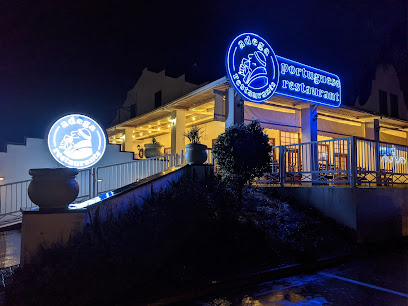
Mdzimba Shisanyama
Experience the authentic taste of Eswatini at Mdzimba Shisanyama, where grilled delights and local flavors come alive.
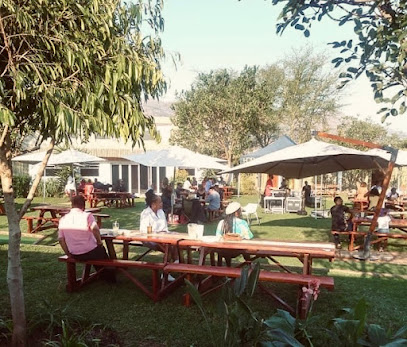
The Albert Millin
Discover the lively spirit of Eswatini at The Albert Millin, a pub offering a unique blend of local charm and vibrant atmosphere.
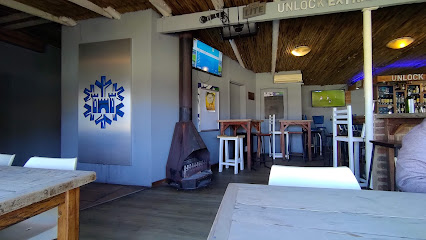
Malkerns Country Club
Discover the heart of Eswatini’s culinary scene at Malkerns Country Club, where local flavors and warm hospitality come together.
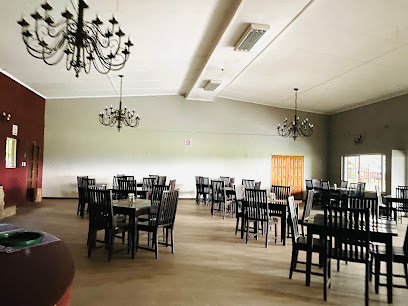
Hippo Haunt
Experience the flavors of Eswatini at Hippo Haunt, a top restaurant in Manzini known for its inviting atmosphere and delicious local cuisine.
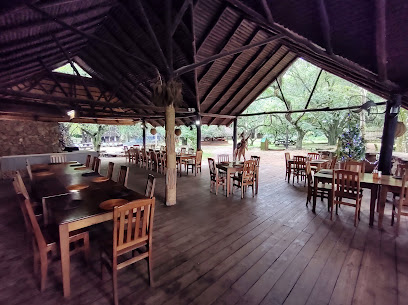
Cozy Corner Bar
Experience the vibrant nightlife at Cozy Corner Bar in Mbabane, where local culture meets a warm and inviting atmosphere.

Mvubu Bar & Restaurant
Experience the vibrant flavors of Eswatini at Mvubu Bar & Restaurant, a perfect blend of local cuisine and warm hospitality.
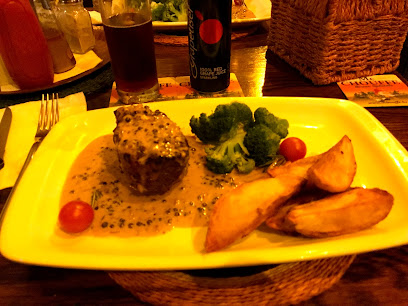
No-Ba Lounge & Eatery
Discover the flavors of Eswatini at No-Ba Lounge & Eatery, where vibrant atmosphere meets delicious cuisine in Malkerns.
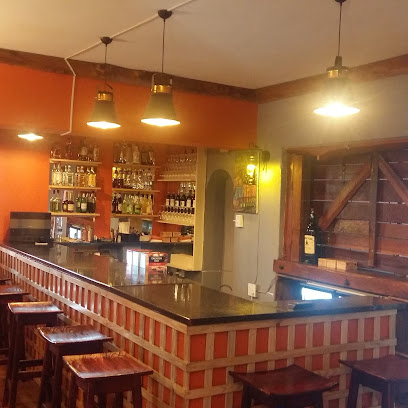
Thunderbolt Craft Brewery,, Mahlanya,, Swaziland
Discover the essence of Eswatini's craft beer scene at Thunderbolt Brewery, where every brew tells a unique story.
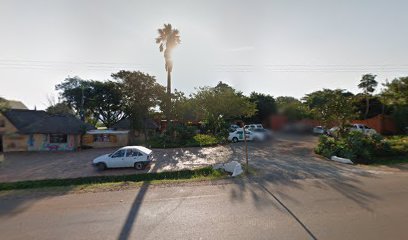
O'Reilly's Bar
Experience the vibrant nightlife of Eswatini at O'Reilly's Bar in Mbabane, where local culture meets a cozy atmosphere.
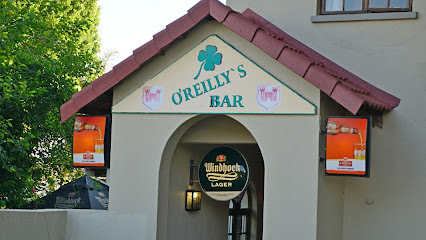
Sun Valley Blues
Discover the vibrant flavors of Eswatini at Sun Valley Blues, a premier grill offering exquisite dishes in a charming setting.
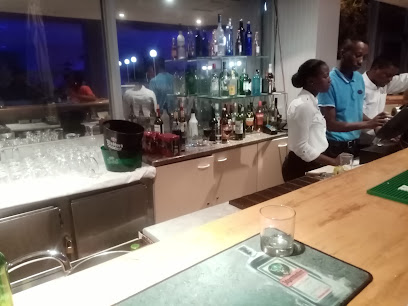
Local Phrases about Mlilwane Wildlife Sanctuary
-
- HelloSawubona
[sah-woo-BOH-nah] - GoodbyeHamba kahle
[HAM-bah kah-hleh] - YesYebo
[YEH-boh] - NoCha
[chah] - Please/You're welcomeNgiyacela
[ng-ee-ya-CEH-lah] - Thank youNgiyabonga
[ng-ee-ya-BOH-ngah] - Excuse me/SorryUxolo
[oo-SHAW-loh] - How are you?Unjani?
[oon-JAH-nee] - Fine. And you?Ngiyaphila. Wena?
[ng-ee-yah-PEE-lah. WEH-nah] - Do you speak English?Ukhuluma isiNgisi?
[oo-khoo-LOO-mah ee-see-NGEE-see] - I don't understandAngazi
[ahng-GAH-zee]
- HelloSawubona
-
- I'd like to see the menu, pleaseNgicela ukubona imenyu
[ng-ee-CEH-lah oo-koo-BOH-nah ee-MEH-nyoo] - I don't eat meatAngiyi kudla inyama
[ahng-GEE-yee koo-dlah ee-NYAH-mah] - Cheers!Ooza!
[OO-zah] - I would like to pay, pleaseNgicela ukulipha
[ng-ee-CEH-lah oo-koo-LEE-pah]
- I'd like to see the menu, pleaseNgicela ukubona imenyu
-
- Help!Usizo!
[oo-SEE-zoh] - Go away!Hamba khona!
[HAM-bah khoh-nah] - Call the Police!Biza amaphoyisa!
[BEE-zah ah-mah-poh-YEE-sah] - Call a doctor!Biza udokotela!
[BEE-zah oo-doh-koh-TEH-lah] - I'm lostNgisukeleke
[ng-ee-soo-keh-LEH-keh] - I'm illNgisemuhle
[ng-ee-seh-MOO-hleh]
- Help!Usizo!
-
- I'd like to buy...Ngicela ukuthenga...
[ng-ee-CEH-lah oo-koo-THEH-ngah] - I'm just lookingNgicela ukubuka kuphela
[ng-ee-CEH-lah oo-koo-BOO-kah koo-PEH-lah] - How much is it?Kuyini le?
[koo-YEE-nee leh] - That's too expensiveKulungile kakhulu
[koo-LOON-gee-leh kah-KHOO-loo] - Can you lower the price?Ungalingani isilinganiso?
[oon-gah-lee-NGAH-nee ee-see-lee-ngah-NEE-so]
- I'd like to buy...Ngicela ukuthenga...
-
- What time is it?Ngubani lesikhathi?
[ngoo-BAH-nee leh-SEE-khah-tee] - It's one o'clockKuyilapha elinye
[koo-YEE-lah-pah eh-LEE-nyeh] - Half past (10)Kunye nge-10
[koo-NYEH ngeh-10] - MorningEkuseni
[eh-koo-SEH-nee] - AfternoonEmini
[eh-MEE-nee] - EveningSesikhathi sasemini
[seh-SEE-khah-tee sah-seh-MEE-nee] - YesterdayIzolo
[ee-ZOH-loh] - TodayNamuhla
[nah-MOO-hlah] - TomorrowKusasa
[koo-SAH-sah] - 1Kunye
[koo-NYEH] - 2Kubili
[koo-BEE-lee] - 3Kuthathu
[koo-TAH-too] - 4Kune
[koo-NEH] - 5Kucinci
[koo-CHIN-chee] - 6Kude
[koo-DEH] - 7Kwadi
[kwah-DEE] - 8Kwane
[kwah-NEH] - 9Kwatile
[kwah-TEE-leh] - 10Kumi
[KOO-mee]
- What time is it?Ngubani lesikhathi?
-
- Where's a/the...?Kuthini i...
[koo-THEE-nee ee] - What's the address?Kwenta isifunda?
[kwen-tah ee-see-FOON-dah] - Can you show me (on the map)?Ungangishiyelani (emephu)?
[oon-gah-ng-ee-shee-yeh-LAH-nee eh-MEH-poo] - When's the next (bus)?Kusasa nini (ibhasi)?
[koo-SAH-sah nee-nee ee-BAH-see] - A ticket (to ....)Iqukethi (ku ....)
[ee-KOO-keh-tee koo]
- Where's a/the...?Kuthini i...
History of Mlilwane Wildlife Sanctuary
-
Mlilwane Wildlife Sanctuary, Eswatini's oldest protected area, was established in 1964 by Ted and Liz Reilly. Ted Reilly, motivated by a passion for conservation, transformed his family farm into a sanctuary to protect the dwindling wildlife populations. His visionary efforts marked a significant turning point in Eswatini's wildlife conservation history.
-
In the early years after its establishment, Mlilwane Wildlife Sanctuary became a pioneer in conservation in Eswatini. The Reillys introduced a variety of species that had been hunted to near extinction, including the white rhino, hippo, and several antelope species. These initial conservation efforts laid the groundwork for future wildlife preservation in the region.
-
The sanctuary received significant support from the Swazi monarchy, particularly King Sobhuza II, who was a proponent of conservation. This royal endorsement facilitated the expansion of Mlilwane, allowing for the reintroduction of more species and the development of infrastructure to support eco-tourism and education.
-
Mlilwane Wildlife Sanctuary is not only a haven for wildlife but also a repository of Swazi cultural heritage. Traditional Swazi homesteads within the sanctuary offer visitors a glimpse into the lives of the local communities. The sanctuary works closely with these communities to promote sustainable practices and ensure that conservation benefits the local people.
-
Mlilwane Wildlife Sanctuary has been at the forefront of eco-tourism in Eswatini. Over the decades, it has developed a range of facilities and activities that attract tourists from around the world. These include guided safaris, bird watching, mountain biking, and cultural tours, all designed to promote environmental awareness and sustainability.
-
The sanctuary is home to an impressive array of biodiversity, including over 400 bird species and a variety of mammals, reptiles, and plants. Conservation successes at Mlilwane have included the successful breeding of endangered species and the re-establishment of balanced ecosystems. These achievements highlight the sanctuary's role in preserving Eswatini's natural heritage.
Mlilwane Wildlife Sanctuary Essentials
-
Mlilwane Wildlife Sanctuary is located in the Ezulwini Valley in Eswatini. The nearest international airport is King Mswati III International Airport, approximately 80 kilometers away. From the airport, you can rent a car or take a taxi to the sanctuary. The drive typically takes about 1.5 hours. Alternatively, you can fly into OR Tambo International Airport in Johannesburg, South Africa, and then drive approximately 4 hours to Mlilwane. There are also shuttle services available from Johannesburg to Eswatini.
-
Within the Mlilwane Wildlife Sanctuary, the best way to explore is by rental car or guided tour. The sanctuary offers mountain biking, horseback riding, and walking safaris, which are great ways to experience the wildlife and scenery up close. Public transportation is limited, so renting a car is recommended for greater flexibility. Taxis are available but can be expensive for longer distances.
-
The official currency in Eswatini is the Swazi Lilangeni (SZL), which is pegged to the South African Rand (ZAR). Both currencies are accepted within the country. Credit cards are widely accepted in hotels, restaurants, and larger shops, but it is advisable to carry some cash for smaller establishments and rural areas. ATMs are available in nearby towns, such as Mbabane and Manzini.
-
Mlilwane Wildlife Sanctuary is generally safe for tourists. However, standard travel precautions should be taken. Avoid walking alone at night and keep your belongings secure. While the sanctuary itself is safe, be cautious in urban areas like Manzini and Mbabane, where petty crime can occur. Always lock your car and don't leave valuables in plain sight.
-
In case of an emergency, dial 999 for police, ambulance, or fire services. The nearest medical facilities are located in Mbabane and Manzini. It is advisable to have comprehensive travel insurance that covers medical emergencies. For minor health issues, there are pharmacies in the nearby towns where you can purchase over-the-counter medications.
-
Fashion: Do wear comfortable and modest clothing suitable for outdoor activities. Avoid wearing very revealing clothing. Religion: Do respect local customs and traditions. Public Transport: Do be patient, as public transport can be slow. Don't expect strict adherence to schedules. Greetings: Do greet people with a handshake and a friendly smile. Eating & Drinking: Do try local dishes and accept food offerings. Don't waste food, as it is considered disrespectful.
-
To experience Mlilwane Wildlife Sanctuary like a local, join a guided walking safari to learn about the flora and fauna from knowledgeable guides. Visit the traditional Swazi cultural village within the sanctuary to gain insights into local customs and traditions. Engage with locals, as they are often friendly and willing to share stories about their culture. Don't miss the opportunity to participate in bird-watching tours, as the sanctuary is home to a wide variety of bird species.
Nearby Cities to Mlilwane Wildlife Sanctuary
-
Things To Do in Manzini
-
Things To Do in Mbabane
-
Things To Do in Mhlume
-
Things To Do in Big Bend
-
Things To Do in Nelspruit
-
Things To Do in Matola
-
Things To Do in Maputo
-
Things To Do in Pretoria
-
Things To Do in Johannesburg
-
Things To Do in Polokwane
-
Things To Do in Mokhotlong
-
Things To Do in Durban
-
Things To Do in Butha-Buthe
-
Things To Do in Leribe
-
Things To Do in Thaba-Tseka





